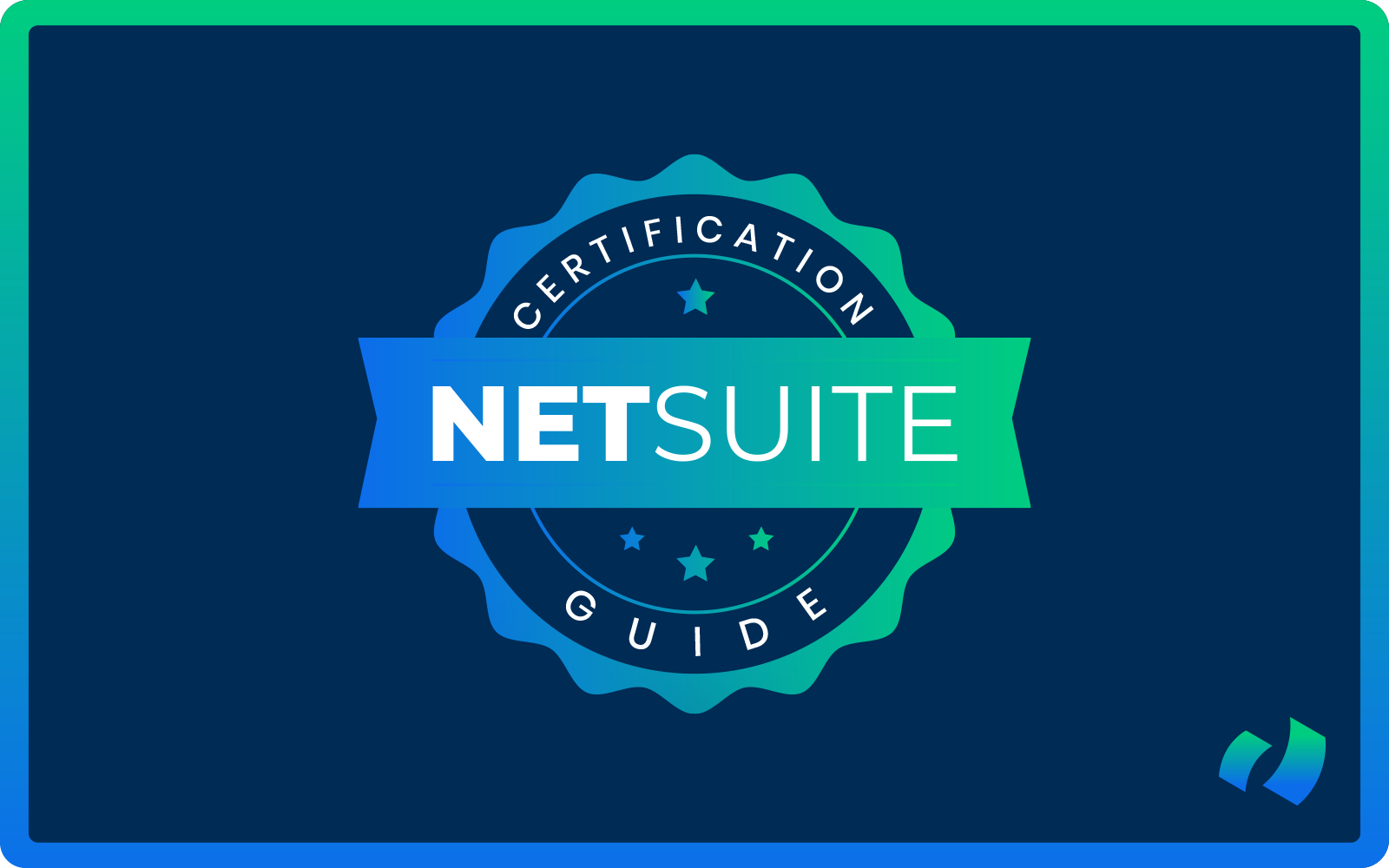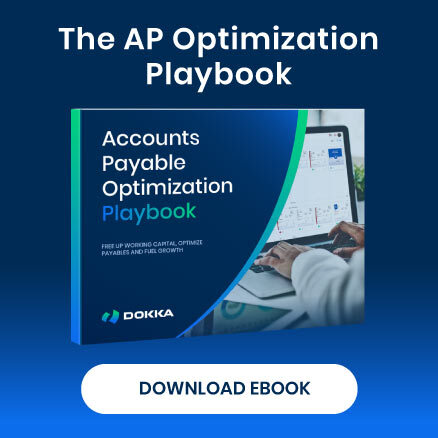Whether you’re a DOKKA AP automation or a Financial Close automation user, earning a NetSuite certification is one of the most effective ways to validate your expertise and differentiate yourself in the job market. With multiple certifications available—each tailored to different roles—navigating your options can be challenging.
In this guide we’ll break down the various NetSuite certification paths, outline their requirements, and help you identify the one that best aligns with your skills and career objectives.
Why You Should Pursue NetSuite Certification
Before exploring the certification paths, it’s good to understand why NetSuite certification is a valuable investment of your time and resources.
Whether you’re an administrator, consultant, developer, or finance professional, earning certification can unlock a broad range of career and personal growth opportunities that extend far beyond a framed credential.
Here’s how certification can elevate your career and performance:
- Boost Your Career Potential
Experience with NetSuite alone may not always be enough. Certification serves as formal proof of your skills, helping you stand out to hiring managers, recruiters, and employers.
Certified professionals often command higher salaries and are more likely to be considered for promotions and leadership roles. Whether you’re pursuing your next opportunity or negotiating a raise, certification gives you a distinct advantage.
More and more employers—especially consulting firms and companies with substantial ERP investments—are making certification a requirement for NetSuite-related roles. Earning one can grant access to opportunities that might otherwise be out of reach.
- Validate Your Expertise
NetSuite certification exams are built to assess real-world knowledge and practical application, not just memorization. Earning a certification shows that you not only understand the platform, but also know how to apply it effectively in dynamic business environments.
This kind of validation is especially valuable for professionals transitioning between roles. For example, moving from a finance position to a systems administrator role becomes more seamless when certification bridges the gap and demonstrates capability to stakeholders.
It also provides a benchmark to measure your knowledge against industry standards while signaling a commitment to continuous learning.
- Deepen Product Knowledge and Improve Efficiency
Preparing for certification offers more than a pathway to passing a test—it provides a chance to explore areas of the platform your daily work might not touch. Even experienced users often uncover new features, best practices, and time-saving techniques during their study process.
Engaging with training resources, practice exams, and real-world scenarios helps you build a deeper and more complete understanding of NetSuite. That translates into greater efficiency, sharper problem-solving, and more effective support for your team.
The end result? Increased confidence, fewer errors, and a stronger ability to deliver value.
- Earn Trust from Employers and Clients
Trust is essential in roles that involve system configuration, process improvement, or project implementation. Certification signals to clients and internal stakeholders that you have the expertise required to deliver results.
For consultants and implementation specialists, certification often enhances credibility with clients. Many firms highlight certified team members as proof of quality and reliability.
Internally, becoming certified can position you as the go-to expert for NetSuite projects—boosting your visibility and paving the way for leadership opportunities within your organization.
Overview of NetSuite Certification Opportunities
- SuiteFoundation Certification
- Administrator Certification
- ERP Consultant Certification
- Application Developer Certification
- Web Services Developer Certification
- SuiteCloud Developer Certification
- Financial User Certification
- SuiteAnalytics User Certification
1) SuiteFoundation Certification
The SuiteFoundation Certification serves as the entry point for all other NetSuite certifications. It validates your understanding of NetSuite’s core functionalities, including navigation, standard modules, and basic setup tasks.
Topics Covered:
- Standard NetSuite navigation
- Core record types (customers, vendors, items)
- Role-based permissions and dashboards
- Activities like setting preferences, creating saved searches, and managing standard processes
Best For: New users, functional consultants, administrators, and developers who need to prove foundational system knowledge.
Why It Matters: As a prerequisite for all other NetSuite certifications, passing this exam is essential to demonstrate readiness for more advanced specializations.
2) Administrator Certification
The Administrator Certification is designed for professionals responsible for configuring and maintaining NetSuite applications. It assesses your ability to manage users, roles, permissions, and system configurations.
Topics Covered:
- Managing users and roles
- System configuration and setup
- Creating workflows and forms
- Access management and auditing tools
Best For: NetSuite administrators, IT professionals, and systems managers who oversee NetSuite implementations or daily system operations.
Why It Matters: This certification demonstrates your ability to ensure efficient, secure, and user-friendly configurations that meet your company’s operational goals.
3) ERP Consultant Certification
The ERP Consultant Certification targets professionals who implement and configure NetSuite ERP solutions. It evaluates your ability to map business requirements to NetSuite functionalities effectively.
Topics Covered:
- ERP implementation lifecycle
- Finance (AR, AP, GL)
- Order management, purchasing, and fulfillment
- Best practices for requirements gathering and solution design
Best For: ERP consultants, project managers, or business analysts.
Why It Matters: Validates the skills needed to lead or assist in full-cycle NetSuite ERP deployments with confidence.
4) Application Developer Certification
The Application Developer Certification is intended for developers who build custom applications and solutions within the NetSuite platform. It tests your proficiency in SuiteScript and the development of SuiteApps.
Topics Covered:
- SuiteScript 1.0 and 2.x
- Script types (User Event, Client, Scheduled, etc.)
- Script deployment and debugging
- SuiteBuilder and SuiteFlow basics
Best For: Developers customizing UI, business logic, or backend processing.
Why It Matters: A powerful credential for showcasing your development capabilities within NetSuite’s native environment.
5) Web Services Developer Certification
This certification focuses on developers who integrate external applications with NetSuite using web services. It assesses your knowledge of SOAP and RESTful APIs within the NetSuite environment.
Topics Covered:
- SuiteTalk (SOAP and REST)
- Authentication methods and security
- Error handling and API limits
- Integration scenarios and best practices
Best For: System integrators and technical developers working on third-party or cross-platform integrations.
Why It Matters: Validates your proficiency in connecting NetSuite with external systems for data sync, automation, and enhanced workflow.
6) SuiteCloud Developer Certification
The SuiteCloud Developer Certification is tailored for developers working with NetSuite’s SuiteCloud platform. It evaluates your ability to customize and extend NetSuite’s capabilities using SuiteScript, SuiteFlow, and other tools.
Topics Covered:
- SuiteCloud IDE and DevOps tools
- SuiteBundler and deployment automation
- Advanced SuiteFlow logic and configurations
- SuiteCloud development frameworks
Best For: Experienced NetSuite developers or solution architects.
Why It Matters: Proves mastery in building scalable, maintainable, and enterprise-grade customizations using the full NetSuite developer toolkit.
7) Financial User Certification
The Financial User Certification is designed for professionals who utilize NetSuite’s financial management features. It confirms your ability to navigate financial modules and perform essential accounting tasks.
Topics Covered:
- Chart of accounts
- Journal entries and accounting periods
- Accounts payable and receivable
- Reporting tools like the Income Statement and Balance Sheet
Best For: Finance professionals like accountants, controllers, and financial analysts.
Why It Matters: Shows that you understand how NetSuite supports everyday finance operations, enabling better oversight and decision-making.
8) SuiteAnalytics User Certification
The SuiteAnalytics User Certification validates your ability to leverage NetSuite’s analytical tools to generate meaningful business insights. This includes working with saved searches, reports, and dashboards—essential features that help businesses make data-driven decisions.
Topics Covered:
- Saved searches and report customization
- Key Performance Indicators (KPIs)
- SuiteAnalytics Workbook features
- Data visualization and dashboards
Best For: Business analysts, financial analysts, and power users who generate insights from business data.
Why It Matters: Demonstrates your ability to use NetSuite as a decision-support tool through powerful reporting and analytics.
Choosing the Right NetSuite Certification Path
With a variety of certifications available, selecting the right path depends on your current role, future goals, and existing experience with NetSuite. Below is a breakdown of common career roles and the certifications best suited to each.
New to NetSuite? Start with SuiteFoundation
Regardless of your role—user, consultant, or developer—the SuiteFoundation Certification is the ideal starting point. It establishes essential baseline knowledge of the NetSuite system, serving as a prerequisite for most other certifications.
System Administrator Role
For those managing users, roles, configurations, and overall system settings:
- Begin with the SuiteFoundation Certification
- Advance to the Administrator Certification
This path is well-suited for IT professionals or operations managers seeking specialization in NetSuite system administration.
Finance Professionals
For individuals in accounting or finance roles:
- The Financial User Certification confirms proficiency in NetSuite’s financial modules.
- Pairing it with the SuiteAnalytics User Certification highlights strong analytical skills.
These certifications are especially valuable for controllers, staff accountants, and financial analysts.
Business Consultants / ERP Implementers
For professionals involved in ERP implementations or client consulting:
- Start with the SuiteFoundation Certification
- Follow with the ERP Consultant Certification
Ideal for business analysts and NetSuite consultants, this path helps align client needs with NetSuite’s ERP capabilities.
Developers (Customization & Integration)
For those focused on custom development and integrations:
- Begin with the SuiteFoundation Certification
- Choose from the following based on your focus:
-
- Application Developer Certification for custom app development
- SuiteCloud Developer Certification for advanced SuiteFlow and customizations
- Web Services Developer Certification for SOAP or REST API integrations
These certifications showcase technical expertise in extending and integrating the NetSuite platform.
Data-Driven Roles (Business Intelligence & Reporting)
For professionals working with reporting, dashboards, and data extraction:
- The SuiteAnalytics User Certification is the primary credential
- Consider adding the Financial User Certification for financial-focused reporting
This combination is ideal for analysts and report developers aiming to deliver deeper insights within NetSuite.
Disclaimer: This article is based on publicly available information and the professional experience of the DOKKA team. DOKKA is not affiliated with Oracle or NetSuite.




